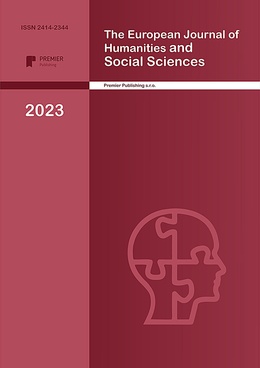Wittgenstein’s Argument on the Mind-body Problem and the Essence of Mind
Authors
Lu Yuanzhong

Share
Annotation
Ludwig Wittgenstein’s unique construct of the philosophy of language has been one of the greatest theories among the realm of logical empiricism. Despite the fundamental contributions Wittgenstein’s has made to the later post-modernist philosophy and the contemporary discussion on the relationship between algorithmic design and human-driven discourses, Wittgenstein’s philosophical construct has greatly influenced the philosophy of mind, modern contemporary science, and of course, the classical philosophical topic of the mind-body problem.
Keywords
Authors
Lu Yuanzhong

Share
References:
Philosophical Investigations (PI), 4th edition, 2009, P.M.S. Hacker and Joachim Schulte (eds. and trans.), Oxford: Wiley-Blackwell.
Wittgenstein: Meaning and Mind Part II: Exegesis §§243 – 427
Descartes, R., 1641: ‘Meditation VI’, in Meditations on the First Philosophy, J. Cottingham (trans.), Cambridge: Cambridge University Press, 1996, pp. 57–72.
Tractatus Logico-Philosophicus (TLP), 1922, C. K. Ogden (trans.), London: Routledge & Kegan Paul. Originally published as “Logisch-Philosophische Abhandlung”, in Annalen der Naturphilosophische, XIV (3/4), 1921.
1990, Wittgenstein: Meaning and Mind, Volume 3 of an Analytical Commentary on the Philosophical Investigations, Oxford: Blackwell.
1996, Wittgenstein: Mind and Will, Volume 4 of an Analytical Commentary on the Philosophical Investigations, Oxford: Blackwell.
Gasser, G. (n.d.). The Mind-Body-Problem and Score-Keeping in Language Games. From the ALWS Archives: A Selection of Papers from the International Wittgenstein Symposia in Kirchberg Am Wechsel. Retrieved August 19, 2023, from https://wab.uib.no/ojs/index.php/agora-alws/article/view/2692
The Blue and Brown Books (BB), 1958, Oxford: Blackwell.
On Certainty, 1969, G. E. M. Anscombe and G. H. von Wright (eds.), G.E.M. Anscombe and D. Paul (trans.), Oxford: Blackwell.
1961, Bodily Sensations, London: Routledge.
Stern, D. G. (1995). 3Introduction. In D. G. Stern (Ed.), Wittgenstein on Mind and Language (p. 0). Oxford University Press. https://doi.org/10.1093/0195080009.003.0001
Smart, J.J.C., 1959, ‘Sensations and Brain Processes’, Philosophical Review, 68: 141–156.
1975, ‘On Some Criticisms of a Physicalist Theory of Colour’, in Chung-ying Cheng (ed.), Philosophical Aspects of the Mind-Body Problem, Honolulu: University of Hawai‘i Press.
Furash, G., 1989, “Frank Jackson’s Knowledge Argument Against Materialism,” Dialogue, 32: 1–6.
Fürst, M., 2011, “What Mary’s Aboutness is About”, Acta Analytica, 26: 63–74.
Gertler, B., 1999, “A Defense of the Knowledge Argument”. Philosophical Studies, 93: 317–336.
Hardin, C.L., 1992, “Physiology, Phenomenology and Spinoza’s True Colors”, in A. Beckermann, H. Flohr & J. Kim (eds.), Emergence or Reduction: Prospects of Nonreductive Physicalism, Berlin: De Gruyter, 201–219.


